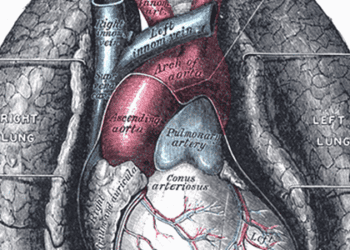Diets high in processed foods may be associated with an increased risk of depressive symptoms
1. In this multicohort study, adherence to dietary patterns rich in processed foods was associated with an increased risk of developing depressive symptoms.
2. However, adherence to a traditional Chinese diet or a healthy dietary pattern was associated with a reduced risk of depressive symptoms.
Evidence Rating Level: 2 (Good)
Depression is a common mental health disorder with high morbidity which can be influenced by several environmental factors. Several studies have suggested that modifiable lifestyle factors, such as the intake of single foods or nutrients, could play a role in preventing the development of depressive symptoms. However, whether more generalized dietary patterns are associated with the incidence of depressive symptoms has not been well studied. Therefore, the present study aimed to investigate the impact of dietary patterns on depressive symptoms.
The study included participants from 2 large prospective cohort studies: the Tianjin Chronic Low-grade Systemic Inflammation and Health (TCLSIH) cohort study, which included 7,094 adult participants living in Tianjin, China, from 2013 to 2019, and the UK Biobank cohort study, which included 96,810 adult participants from the UK between 2006 and 2010. Participants were excluded if they had missing dietary data or a history of cardiovascular disease, cancer, or depressive symptoms at baseline. Participants’ dietary patterns were identified using validated food frequency questionnaires. Depressive symptoms were assessed using the Zung Self-Rating Depression Scale (SD) in the TCLSIH cohort or hospital inpatient records in the UK Biobank study. The primary outcome was the association between various dietary patterns and depressive symptoms.
The results demonstrated that in the TCLSIH cohort, following a traditional Chinese dietary pattern was associated with a lower risk of depressive symptoms. In comparison, diets high in sugar or processed animal offal were associated with a higher risk of depressive symptoms. Similarly, following a dietary pattern high in processed food was associated with a higher risk of depressive symptoms in the UK Biobank cohort. Overall, in both cohorts, a healthy dietary pattern was associated with a reduced risk of depressive symptoms. The study was limited by the measure of depressive symptoms in the TCLSIH cohort, which was not based on diagnostic psychiatric interviews. Nonetheless, the results suggested that dietary patterns could affect the risk of developing depressive symptoms.
Click to read the study in International Journal of Behavioral Nutrition and Physical Activity
Image: PD
©2023 2 Minute Medicine, Inc. All rights reserved. No works may be reproduced without expressed written consent from 2 Minute Medicine, Inc. Inquire about licensing here. No article should be construed as medical advice and is not intended as such by the authors or by 2 Minute Medicine, Inc.







